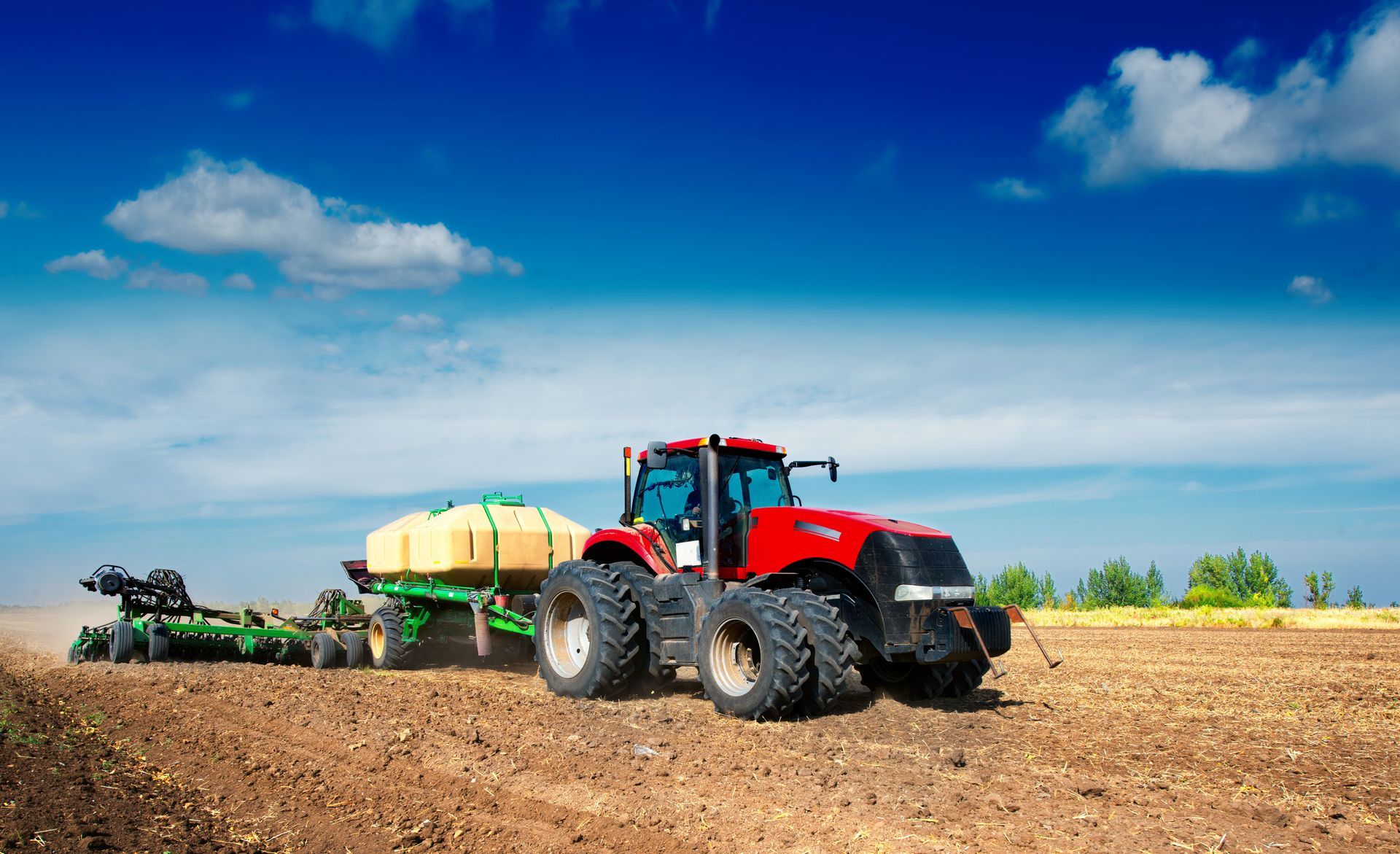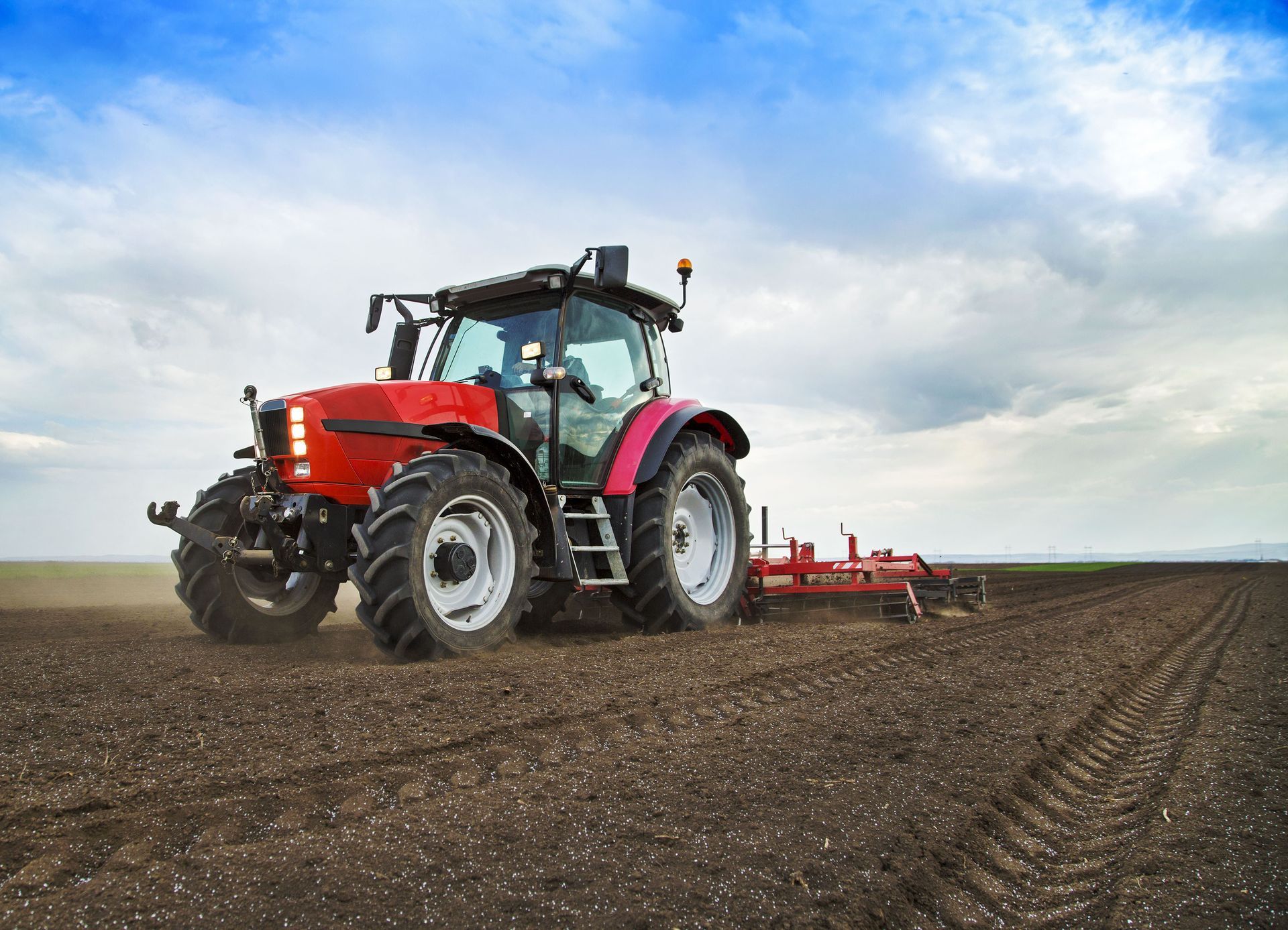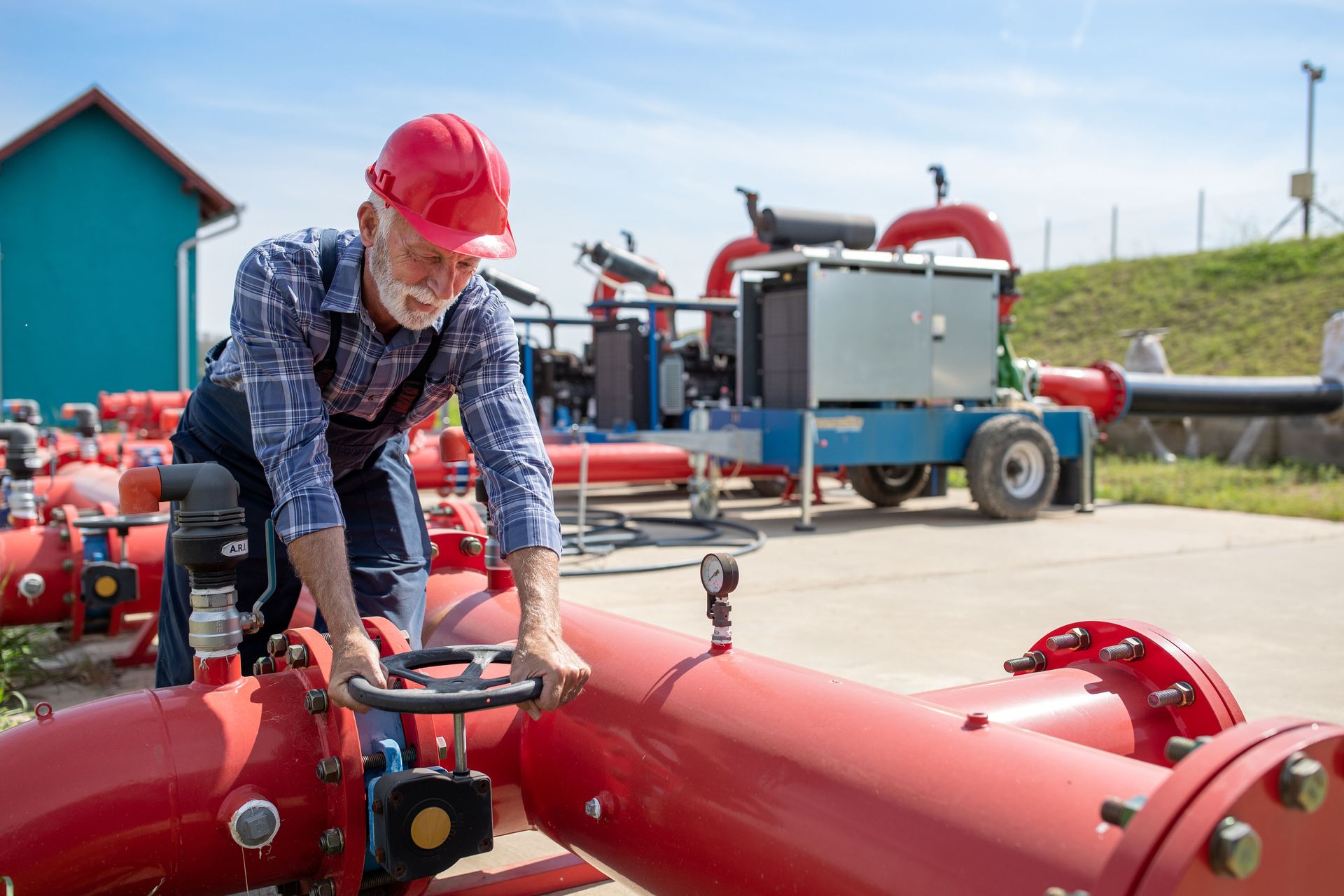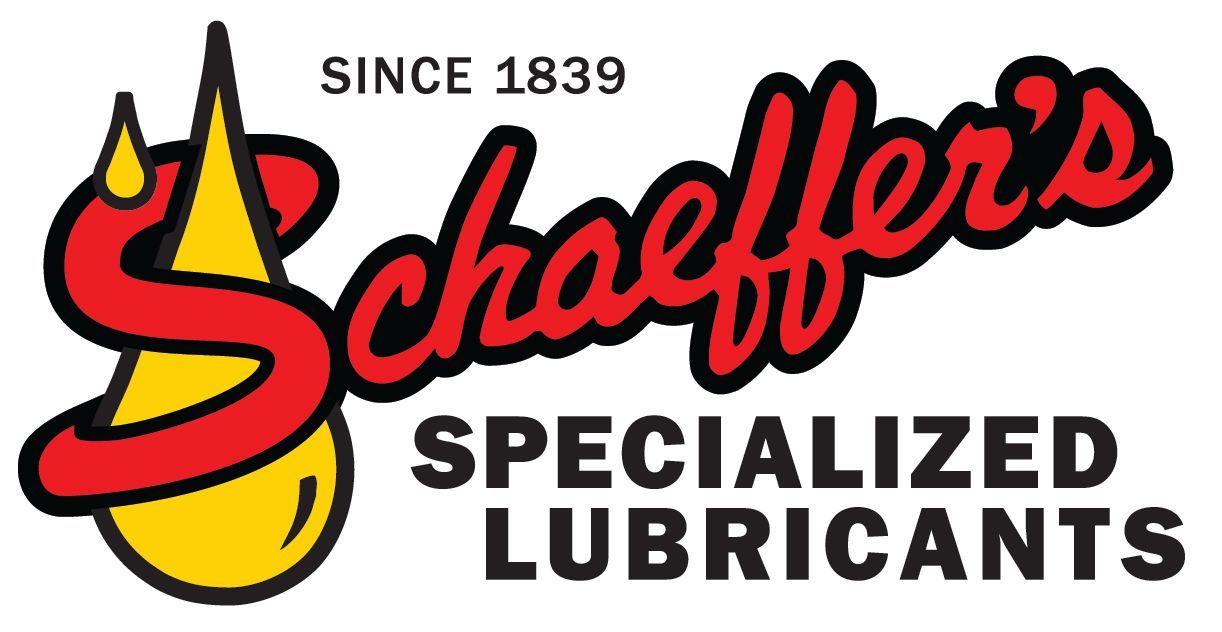November 21, 2025
Hydraulic systems are critical components of modern agricultural machinery, including tractors, combines, harvesters, and loaders. They power key functions such as lifting, steering, and controlling attachments. Despite their importance, hydraulic systems are subject to wear, contamination, and mechanical failure. Identifying problems early and employing professional agricultural machine repairs can prevent major downtime, reduce repair costs, and prolong equipment life. Below are nine common hydraulic issues and detailed explanations of how expert repairs address them effectively.
1. Leaking Hydraulic Lines
Hydraulic lines operate under high pressure and are exposed to vibration, movement, and varying weather conditions, making leaks one of the most frequent hydraulic problems. Leaks can occur at hose connections, fittings, or along the hose itself due to wear, abrasion, or improper installation. Visible signs include fluid dripping or pooling under the machine, wet spots along hoses, or decreased system performance. Leaks not only reduce efficiency but also pose environmental hazards and can damage other components due to fluid contamination. Experts in agricultural machine repairs will use pressure tests and visual inspections to identify the exact location of leaks. They replace worn or damaged hoses, install proper fittings and seals, and ensure all connections are secure. Regular maintenance can prevent future leaks, protect equipment performance, and reduce the risk of costly hydraulic failures.
2. Contaminated Hydraulic Fluid
Hydraulic fluid is the lifeblood of hydraulic systems, transmitting power to various components. Contamination from dirt, water, metal shavings, or degraded fluid can compromise system efficiency and cause premature wear on pumps, valves, and cylinders. Signs of contaminated fluid include erratic equipment behavior, slow response, unusual noises, or overheating. Ignoring contamination can lead to catastrophic failures, requiring expensive repairs or replacements. During agricultural machine repairs, technicians perform fluid analysis to detect contaminants and assess fluid condition. Contaminated fluid is fully flushed from the system and replaced with high-quality hydraulic oil that meets manufacturer specifications. In addition, filters are inspected and replaced if necessary. Preventive measures, such as using proper storage techniques and regularly checking fluid condition, help keep hydraulic systems operating smoothly and extend component lifespan.
3. Worn Hydraulic Pumps
Hydraulic pumps generate the pressure needed for machinery to operate attachments, lift loads, and power implements. Over time, pumps can wear due to continuous operation, contaminated fluid, or internal component damage. Symptoms of a worn pump include decreased pressure, unusual noises such as whining or grinding, sluggish operation, or overheating. If left unaddressed, a failing pump can damage downstream components like valves and cylinders. Agricultural machine repair professionals diagnose pump issues by measuring pressure output and inspecting internal parts. They can rebuild worn pumps, replace damaged components, or install a new pump if necessary. Repaired pumps are tested under load conditions to ensure reliable performance, preventing costly downtime and maintaining smooth machine operation in the field.
4. Malfunctioning Hydraulic Cylinders
Hydraulic cylinders control the movement of attachments, including loaders, plows, and lifting mechanisms. Common problems include fluid leaks, bent rods, or damaged seals, which can cause reduced lifting capacity, slow movement, or complete failure. Malfunctioning cylinders can disrupt field operations and increase labor time. During agricultural machine repairs, technicians inspect cylinders for leaks, measure rod straightness, and replace worn seals. Some repairs may require cylinder rebuilding or full replacement. After repairs, the system is tested to verify smooth, consistent movement and correct pressure operation. Regular cylinder maintenance prevents unexpected failures and ensures attachments perform safely and efficiently during demanding tasks.
5. Air in the Hydraulic System
Air trapped in hydraulic systems can lead to spongy, jerky, or unpredictable machine operation. It reduces system efficiency and can damage pumps and valves over time. Air often enters the system due to improper filling, leaks in suction lines, or pump cavitation. Symptoms include delayed cylinder response, inconsistent pressure, and unusual noises. During agricultural machine repairs, technicians identify air pockets using specialized diagnostic tools, then bleed the system to remove trapped air. Proper fluid filling procedures and leak inspections are conducted to prevent future occurrences. By removing air, the system regains smooth responsiveness, reduces operational noise, and protects components from damage, improving overall machine reliability.
6. Overheating Hydraulics
Overheating is a serious issue that can reduce hydraulic fluid viscosity, damage seals, warp components, and shorten the life of pumps and valves. Causes include overworked pumps, blocked or dirty filters, insufficient fluid levels, or inadequate cooling systems. Signs of overheating include high fluid temperature warnings, sluggish operation, or a burning smell from hydraulic components. Professional repairs involve inspecting fluid levels, cleaning or replacing filters, checking the efficiency of cooling systems, and adjusting operational parameters to reduce excessive load. Technicians may also recommend fluid with higher thermal stability. Correcting overheating issues prevents permanent component damage, maintains consistent performance, and ensures the system operates safely under heavy workloads.
7. Slow or Jerky Machine Movements
Hydraulic systems are designed to provide smooth, precise movements. Slow, unresponsive, or jerky motions often indicate internal leakage, worn pumps, air in the system, or clogged filters. These issues reduce productivity and may affect safety during operations such as lifting or positioning attachments. Agricultural machine repair experts perform diagnostic tests to locate the exact cause, clean or replace clogged filters, repair leaks, and rebuild or replace worn pumps if needed. After repairs, the system is tested under various operational conditions to ensure smooth, reliable movement. Maintaining precise control of hydraulic systems enhances efficiency and prevents potential accidents in the field.
8. Pressure Fluctuations
Consistent hydraulic pressure is crucial for reliable machinery operation. Fluctuating pressure can result in unpredictable attachment movement, reduced lifting capacity, and even component failure. Common causes include worn pumps, faulty relief valves, air in the system, or blockages in hoses or lines. Technicians performing agricultural machine repairs use pressure gauges and diagnostic equipment to identify the source of fluctuations. Repairs may include adjusting or replacing relief valves, cleaning lines, replacing worn pumps, and ensuring proper system calibration. Stable hydraulic pressure improves operational safety, protects components from excessive wear, and allows farmers to maintain precise control over implements and attachments during work.
9. Faulty Control Valves
Control valves regulate the flow of hydraulic fluid to different parts of the system, directing power to attachments and machinery functions. Faulty or worn valves can lead to unresponsive, slow, or erratic equipment behavior, impacting both productivity and safety. Symptoms include delayed cylinder movements, jerky operation, or failure of specific attachments. During agricultural machine repairs, technicians inspect valves for wear, corrosion, or blockage, then clean, rebuild, or replace them as needed. Calibration ensures the system responds correctly to operator inputs. Properly functioning control valves ensure precise and reliable operation, reduce strain on other hydraulic components, and enhance overall machine efficiency.
Hydraulic issues in agricultural machinery can disrupt productivity and lead to expensive repairs if not addressed promptly. Regular inspections, preventive maintenance, and timely repairs performed by skilled technicians are critical for maximizing equipment longevity, ensuring operational safety, and keeping machinery running smoothly throughout every busy season. According to Investigate Midwest, farmers lose an average of $3,348 per year due to repair downtime and restrictions from equipment manufacturers. Fortunately, our team at K & J Repair is here to provide prompt repairs for your agricultural machines. We've served Shiawassee, Ingham, and Livingston counties in Michigan since 2001, so get in touch with us today for an estimate!






